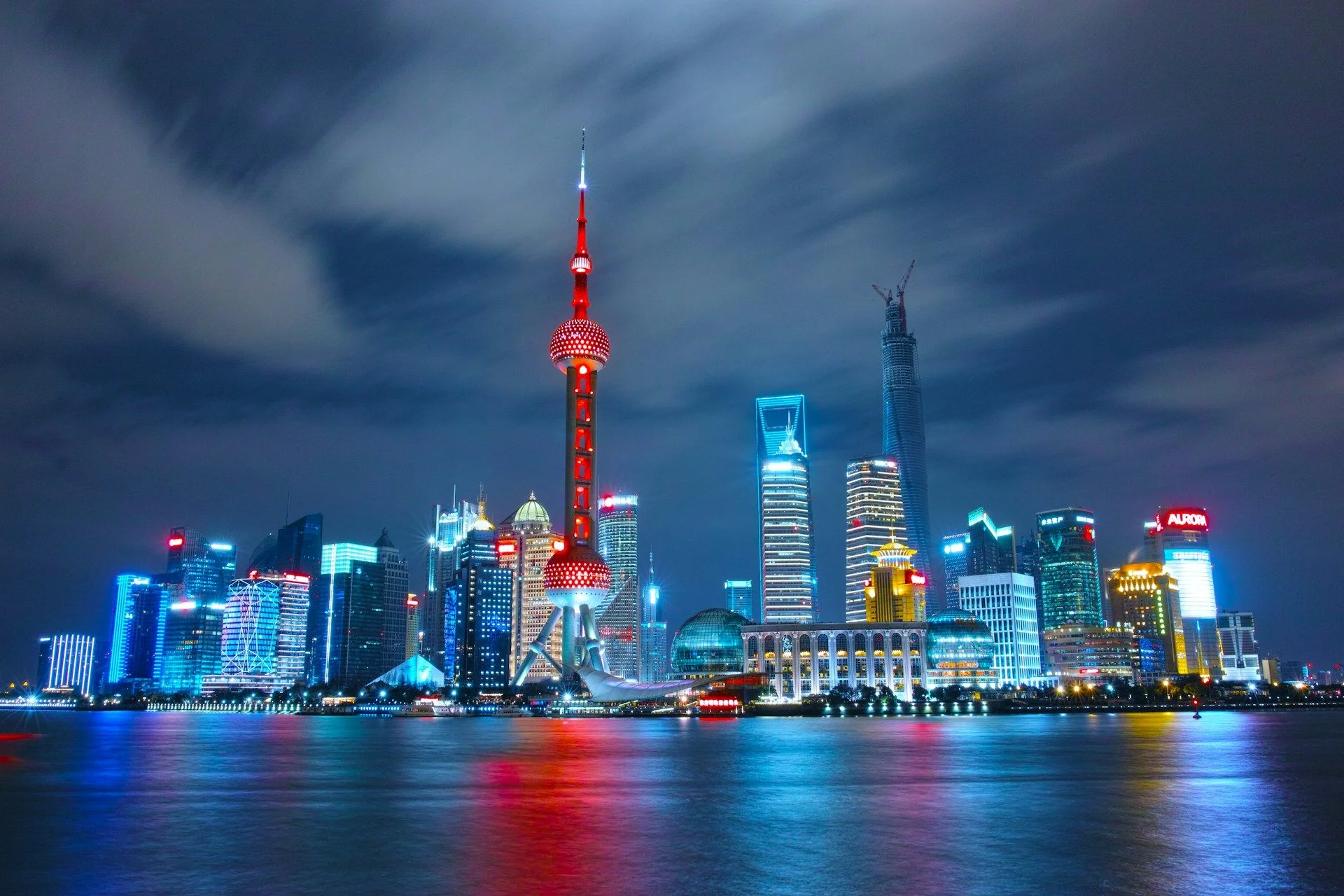عقارات ثانوية بأسعار معقولة في شنغهايمساكن فاخرة في بودونغعلى الواجهة البحرية

أفضل العروض
في شنغهاي
Benefits of investment in
China real estate
Global attention on tier-1 cities
Beijing, Shanghai, and Shenzhen remain magnets for innovation, growth, and high-value real estate.
Continuous infrastructure development
Smart city projects and urban upgrades boost long-term value across key zones.
Premium properties with strategic access
Opportunities in business districts offer ownership formats tailored to international investors.
Global attention on tier-1 cities
Beijing, Shanghai, and Shenzhen remain magnets for innovation, growth, and high-value real estate.
Continuous infrastructure development
Smart city projects and urban upgrades boost long-term value across key zones.
Premium properties with strategic access
Opportunities in business districts offer ownership formats tailored to international investors.

مقالات مفيدة
وتوصيات من الخبراء
Why Secondary Real Estate in Shanghai Commands Global Investor Attention
Shanghai, China’s preeminent global metropolis, boasts a mature secondary real estate market prized by English-speaking investors—multinational executives, financial-services professionals, and affluent retirees alike. Resale apartments in central districts, heritage shikumen townhouses in Former French Concession, and luxury high-rise condominiums in Pudong New Area typically trade 10–15% below equivalent new developments yet offer turnkey occupancy, established rental histories, and immediate access to top-tier amenities. With transparent title transfers under China’s property‐rights framework, moderate transaction costs, and yields driven by corporate leasing, expatriate families, and short-stay tourism, secondary real estate in Shanghai delivers both lifestyle appeal and dependable returns.
Core Districts and Rental Dynamics
Huangpu District, at the city center, encompasses the Bund, People’s Square, and bustling Nanjing Road. Secondary-market apartments here—spanning Art Deco buildings and 1990s high-rises—yield 3.5–4.5% gross to long-term tenants: bank executives, foreign-owned-enterprise staff, and visiting academics at Fudan University’s downtown campus. Short-stay guests—drawn by nearby theaters, galleries, and the Oriental Pearl Tower—push seasonal yields to 5–6% when managed by licensed serviced-apartment operators.
In the leafy Former French Concession, shikumen residences and jewel-box walk-ups line tree-shaded boulevards. Heritage townhouses—when available on the resale market—trade at premiums reflecting their scarcity but deliver yields of 3–4% from expatriate families and creative-sector professionals. Value-add buyers often negotiate renovation credits to modernize kitchens, install central air-conditioning, and upgrade noise insulation, boosting net achievable rents by 15–20%.
Across the Huangpu River in Pudong New Area, resale condos in Lujiazui’s supertall-skyscraper cluster—such as the IFC and Jin Mao Tower residences—offer panoramic views of the Bund skyline. These luxury high-rise resales yield 4–5% to financial-sector expatriates and hedge-fund managers, supported by proximity to the Shanghai Stock Exchange and global-bank headquarters. Nearby gated estates in Zhangjiang Hi-Tech Park appeal to technology executives, with mid-2000s villa clusters and low-rise apartments delivering 4–6% yields on stable corporate leases.
Legal, Tax, and Financing Essentials for Non-Resident Investors
Foreign nationals purchasing secondary real estate in Shanghai must meet requirements under China’s property‐rights regime: a valid residence permit (work, study, or family reunion) and local household registration (hukou) or a one-time exemption permit. Once eligibility is established, title transfers occur at municipal Real Estate Registration Centers. Transaction costs include:
- Deed Tax: 3% of the lower of negotiated price or government-assessed value for resales.
- Stamp Duty: Nominal (¥100–¥200) on sale agreements and transfer documents.
- Registration Fees: ¥80–200 per transaction.
Total closing costs remain under 4%, notably lower than many global gateway cities. Ongoing property taxes for residential units are effectively replaced by this one-time deed tax, and monthly maintenance fees average ¥2–4 per square meter, covering building services and security.
Key considerations for non-resident buyers include:
- Purchase Quotas: Foreigners may buy one property in their city of residence; Shanghai’s relaxed policies for certain visa-holders sometimes allow additional purchases for business-investment purposes.
- Financing: Domestic banks (e.g., Bank of China, ICBC) offer mortgages up to 70% loan-to-value at rates tied to the People’s Bank benchmark (≈4.5–5.5% APR). Many investors bridge financing with home-country loans to hedge renminbi volatility.
- Due Diligence: Engage a Shanghai-licensed attorney to confirm clear title, review building permits, verify homeowners’-association reserves, and ensure compliance with seismic-safety and flooding guidelines—essential in low-lying riverfront districts.
Shanghai’s advanced transport infrastructure further bolsters the secondary market. With >20 metro lines operational or under construction—linking central districts, suburban enclaves, and both airports—properties within 300 meters of key stations see resale premiums of 5–7%. Major expressways and the elevated Maglev connection to Pudong Airport reduce commute times, elevating demand for resale units in peripheral nodes like Jiading, Minhang, and Fengxian.
Tenant demand in Shanghai spans multiple segments: long-term leases by expatriate families in school districts such as YEW—Yew Chung International School—drive occupancy in Gubei and Hongqiao; corporate housing agreements for short-term staff at global-bank branches fuel demand in Lujiazui and Xujiahui; and visitors to trade shows at the NECC and SNIEC (Shanghai New International Expo Centre) sustain short-stay bookings in serviced resales nearby. Professional property managers handle all aspects of leasing, maintenance, and financial reporting, enabling overseas owners to enjoy passive income streams with transparent monthly dashboards.
Emerging micro-niche opportunities include repurposing older walk-up blocks in Jing’an Temple precinct into design-hotel-style accommodations, commanding nightly yields of 8–10% during peak tourism seasons; and targeting resale units in Songjiang University Town—converted student apartments that can be repositioned for visiting scholars and family stays at premium rates. By understanding Shanghai’s nuanced neighborhood dynamics, leveraging favorable transaction costs, and aligning acquisitions with transport-network expansions and event-driven rental cycles, global investors can secure both lifestyle prestige and robust returns in China’s most international city.
